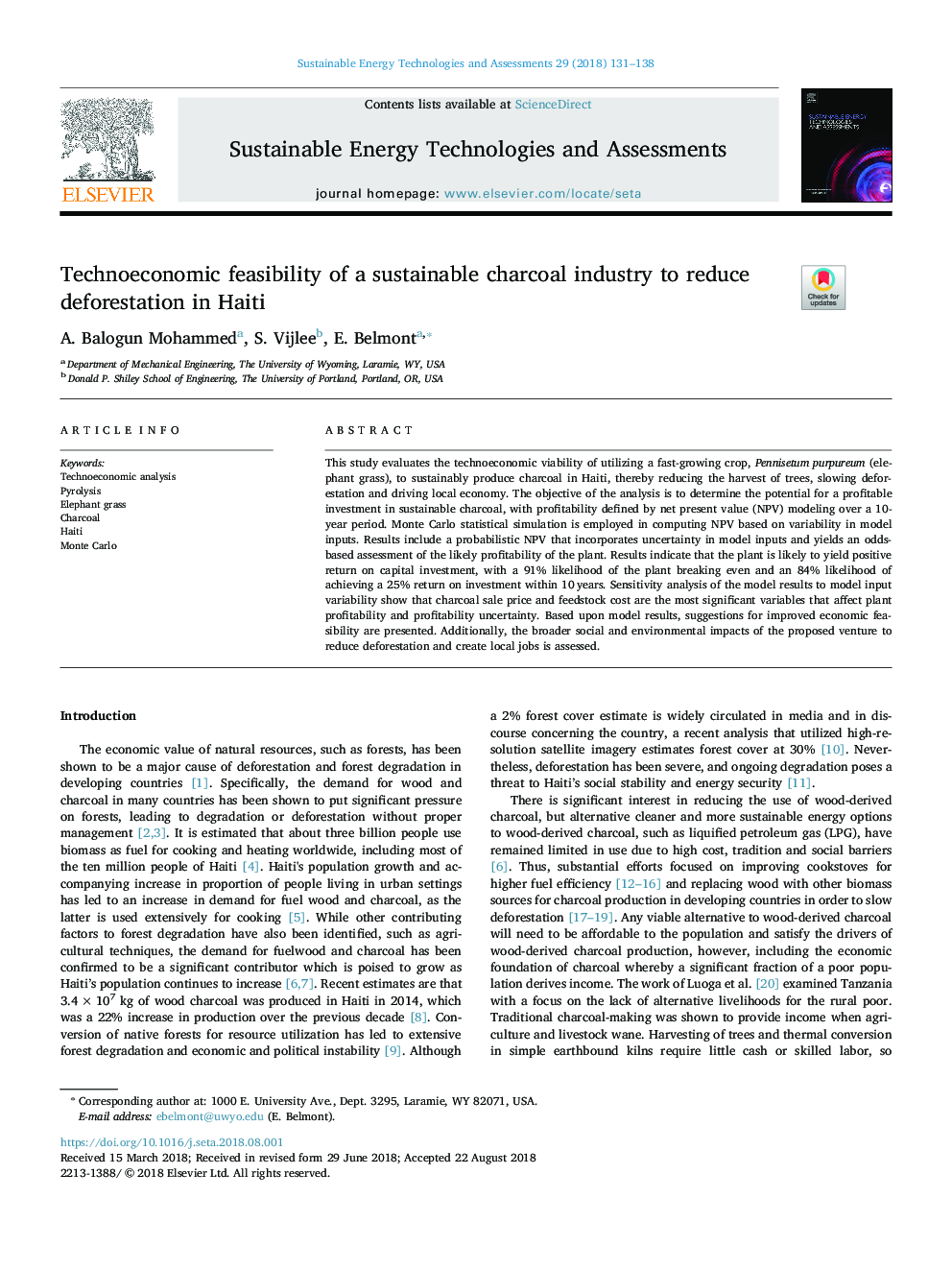| Article ID | Journal | Published Year | Pages | File Type |
|---|---|---|---|---|
| 11007477 | Sustainable Energy Technologies and Assessments | 2018 | 8 Pages |
Abstract
This study evaluates the technoeconomic viability of utilizing a fast-growing crop, Pennisetum purpureum (elephant grass), to sustainably produce charcoal in Haiti, thereby reducing the harvest of trees, slowing deforestation and driving local economy. The objective of the analysis is to determine the potential for a profitable investment in sustainable charcoal, with profitability defined by net present value (NPV) modeling over a 10-year period. Monte Carlo statistical simulation is employed in computing NPV based on variability in model inputs. Results include a probabilistic NPV that incorporates uncertainty in model inputs and yields an odds-based assessment of the likely profitability of the plant. Results indicate that the plant is likely to yield positive return on capital investment, with a 91% likelihood of the plant breaking even and an 84% likelihood of achieving a 25% return on investment within 10â¯years. Sensitivity analysis of the model results to model input variability show that charcoal sale price and feedstock cost are the most significant variables that affect plant profitability and profitability uncertainty. Based upon model results, suggestions for improved economic feasibility are presented. Additionally, the broader social and environmental impacts of the proposed venture to reduce deforestation and create local jobs is assessed.
Related Topics
Physical Sciences and Engineering
Energy
Energy Engineering and Power Technology
Authors
A. Balogun Mohammed, S. Vijlee, E. Belmont,
